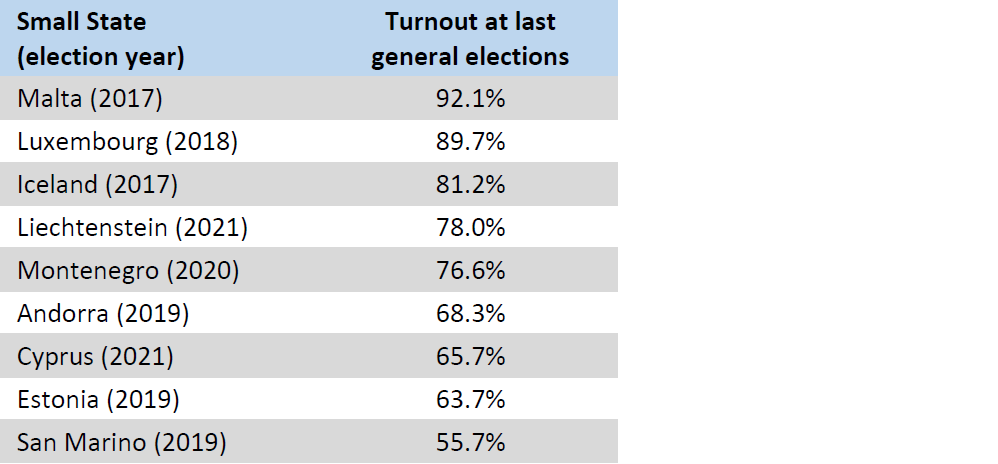Populism has spread over the world – to what degree, however, depends (also) on the definition of populism. The electoral strength of populist parties in turn heavily depends on opportunity structures, but also on the national party system. As a consequence, in some of the European small states, there has not been an emergence of populist parties, sometimes simply because the party system does not allow or foster the emergence of new parties in general. And even if the statutory framework as such does not exclude new parties from emerging, the current situation within these countries is unfavourable for the emergence of populist parties, or for that matter, any other parties. Liechtenstein, Luxembourg, Andorra and, to some degree, also Malta fall into this category. That is not to say that there is no populism and extremism existent in these countries. Rather, these anti-establishment sentiments have not (yet) been organized in the form of parties or influential movements.
In other countries, however, populist parties have gained in strength. In Estonia, the EKRE party, founded in 2011 and building their election campaigns around the question of refugees, is meanwhile part of the Estonian government, driving even the agenda in the coalition government.
Iceland, too, has – to some degree – seen the rise of populist parties (or something like semi-populist). Following the crisis of 2008, a completely renewed leadership took over the country's old agrarian party, the Progressive Party (PP), which was then rapidly transformed in a more populist direction. In the same direction goes the rather recently founded Centre Party (Miðflokkurinn). Extremist parties and movements like the National Front and the Nordic Resistant Movement, however, have a very limited following.
In Cyprus, there has been a growth of a combination of xenophobic ethno-nationalism and anti-political establishment populism, sometimes blended with calls for more law and order and a more leftist opposition against hedge funds and, as they are called, "loan shark bankers".
In Montenegro, populism seems to be pervasive. Both, government party and opposition parties, use populist rhetoric. There have been strong populistic appeals during the 2020 elections. But then again, and this seems to be one of the problems of populism research in general, eventually one will find populist elements in most, if not all parties' campaigns. The antagonism between a "corrupt elite" and the "pure people" can be found in the rhetoric of right and left wing parties alike, and quite often also in centre parties.


